-
 Bitcoin
Bitcoin $118,698.3676
0.16% -
 Ethereum
Ethereum $3,428.4877
5.97% -
 XRP
XRP $3.2496
9.52% -
 Tether USDt
Tether USDt $1.0002
0.00% -
 BNB
BNB $725.6930
4.36% -
 Solana
Solana $174.8923
4.52% -
 USDC
USDC $0.9997
-0.02% -
 Dogecoin
Dogecoin $0.2139
6.02% -
 TRON
TRON $0.3155
4.62% -
 Cardano
Cardano $0.8045
7.12% -
 Hyperliquid
Hyperliquid $46.6582
-1.72% -
 Stellar
Stellar $0.4676
0.80% -
 Sui
Sui $4.0143
0.38% -
 Chainlink
Chainlink $17.1546
2.97% -
 Hedera
Hedera $0.2458
3.27% -
 Bitcoin Cash
Bitcoin Cash $496.5967
-0.06% -
 Avalanche
Avalanche $22.8813
3.13% -
 Shiba Inu
Shiba Inu $0.0...01439
3.42% -
 UNUS SED LEO
UNUS SED LEO $8.8389
0.42% -
 Toncoin
Toncoin $3.2113
2.82% -
 Litecoin
Litecoin $101.2646
4.24% -
 Polkadot
Polkadot $4.2262
2.32% -
 Monero
Monero $340.4295
2.92% -
 Pepe
Pepe $0.0...01365
2.92% -
 Uniswap
Uniswap $8.9702
-2.78% -
 Bitget Token
Bitget Token $4.7675
2.00% -
 Dai
Dai $0.9998
-0.02% -
 Ethena USDe
Ethena USDe $1.0003
-0.04% -
 Aave
Aave $324.6394
-2.11% -
 Bittensor
Bittensor $433.6051
-0.88%
How does the smart contract of NFT work?
NFT smart contracts, self-executing code on a blockchain, automate ownership tracking, royalty payments, and access control for unique digital assets, enhancing transparency and security but demanding careful development and auditing.
Mar 20, 2025 at 11:28 am
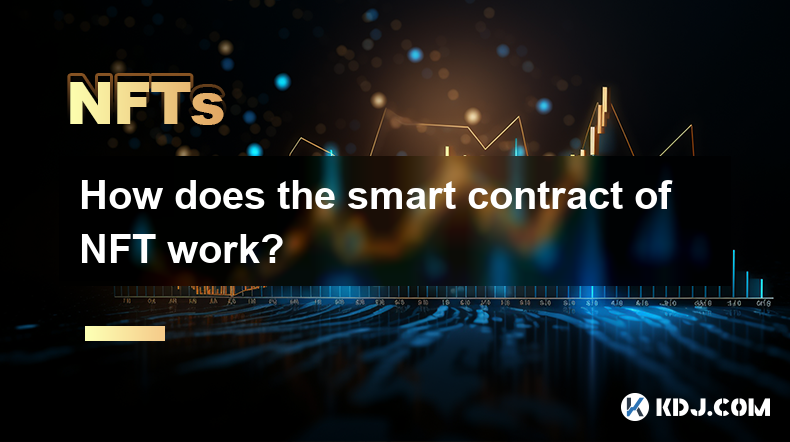
Key Points:
- NFTs are non-fungible tokens, unique digital assets verified on a blockchain.
- Smart contracts automate the execution of agreements regarding NFTs, removing intermediaries.
- Smart contracts define NFT ownership, transfer rules, and associated functionalities.
- Different blockchain platforms have varying smart contract languages and functionalities.
- Security considerations are paramount in smart contract development and deployment.
How Does the Smart Contract of an NFT Work?
NFTs, representing unique digital assets, leverage smart contracts to govern their existence and functionality. A smart contract, essentially a self-executing contract with the terms of the agreement directly written into code, acts as the backbone for many NFT operations. This code resides on a blockchain, ensuring transparency and immutability. The contract defines the NFT's characteristics, ownership, and the conditions under which it can be transferred or interacted with.
The core function of an NFT smart contract is to manage ownership. It meticulously tracks who owns the NFT at any given time. This is achieved through the use of variables within the contract that store the current owner's address. When an NFT is transferred, the smart contract updates this variable to reflect the new owner. This process is automated and transparent, eliminating the need for a centralized authority to manage ownership records.
Beyond ownership tracking, smart contracts can incorporate much more sophisticated functionality. For example, they can automate royalty payments to creators whenever an NFT is resold. This ensures that artists continue to receive a share of the profits from their work, even after the initial sale. This is achieved by including a clause within the smart contract that automatically transfers a percentage of the sale price to the creator's designated wallet.
Smart contracts can also implement access controls. This means that certain functionalities of an NFT might only be accessible to specific users or under specific conditions. For instance, a smart contract could grant exclusive access to a digital artwork to its owner only, or it could unlock certain features after meeting predefined criteria, such as holding the NFT for a certain period.
The implementation of these functionalities varies across different blockchain platforms. Ethereum, a prominent blockchain for NFTs, utilizes Solidity as its primary smart contract language. Other blockchains, such as Solana or Cardano, have their own languages and development environments. The choice of platform influences the capabilities and complexities of the implemented smart contract.
Security is paramount when dealing with smart contracts. A vulnerability in a smart contract can lead to the loss or theft of NFTs. Therefore, rigorous testing and auditing are crucial before deploying a smart contract to a live network. Experienced developers utilize various security practices to minimize vulnerabilities and ensure the integrity of the NFT and its associated smart contract. This involves code reviews, penetration testing, and formal verification techniques.
The process of creating an NFT often involves several steps. First, the NFT's metadata (description, image, etc.) is prepared. Then, a smart contract is written and deployed to the blockchain. Finally, the NFT is minted (created) using the deployed smart contract. This process essentially binds the NFT to its associated smart contract, defining its behavior and characteristics.
- Creating the NFT metadata: This involves preparing all relevant information about the NFT, including its name, description, image, and any other relevant attributes.
- Writing and deploying the smart contract: This involves coding the logic of the smart contract in a suitable language (e.g., Solidity) and deploying it to a blockchain.
- Minting the NFT: This is the final step where the NFT is created on the blockchain and linked to the smart contract.
The interaction between users and NFTs is also governed by the smart contract. When a user wants to buy, sell, or transfer an NFT, they interact with the smart contract through their wallet. The smart contract then executes the appropriate actions, such as updating ownership records or transferring funds. This interaction is facilitated by blockchain wallets and decentralized applications (dApps).
Different types of smart contracts can be used for different NFT projects. Some might be simple, only handling basic ownership transfer, while others might be more complex, incorporating royalties, access controls, and other functionalities. The complexity of the smart contract depends on the requirements of the NFT project.
Frequently Asked Questions:
Q: What happens if there's a bug in an NFT's smart contract?
A: Bugs in smart contracts can lead to various issues, from unexpected behavior to complete loss of funds or NFTs. Thorough auditing and testing are crucial to mitigate this risk.
Q: Can smart contracts be updated after deployment?
A: The ability to update a smart contract depends on its design and the blockchain platform. Some platforms allow for upgrades, while others require deploying a new contract.
Q: Are all NFTs governed by smart contracts?
A: While many NFTs utilize smart contracts, some simpler NFTs might not require the complexity of a smart contract for their functionality.
Q: How secure are NFT smart contracts?
A: The security of an NFT smart contract depends heavily on its design, implementation, and the security practices followed during its development and deployment. Professional audits are crucial for ensuring security.
Q: Can I create my own NFT smart contract?
A: Yes, but it requires programming skills in a blockchain-specific language like Solidity and a deep understanding of smart contract security best practices.
Disclaimer:info@kdj.com
The information provided is not trading advice. kdj.com does not assume any responsibility for any investments made based on the information provided in this article. Cryptocurrencies are highly volatile and it is highly recommended that you invest with caution after thorough research!
If you believe that the content used on this website infringes your copyright, please contact us immediately (info@kdj.com) and we will delete it promptly.
- Shiba Inu, AI Tokens, and the Meme Coin Mania: What's Next?
- 2025-07-18 03:50:12
- XRP's Wild Ride: Chasing ATHs and Cloud Mining Dreams in the Crypto Jungle
- 2025-07-18 02:30:13
- MoonBull, Crypto Gains, and MEW Volume: What's Buzzing in the Meme Coin World?
- 2025-07-18 02:35:12
- Crypto Market, Bull Market, and Policy: Navigating Trump's 'Crypto Week' Rollercoaster
- 2025-07-18 01:50:12
- Winning Design: Nine-Year-Old's Art Becomes a Chocolate Coin!
- 2025-07-18 01:10:12
- Penguin Power, BlockDAG Boldness, and Uniswap's Upswing: Decoding Crypto's Latest Moves
- 2025-07-18 01:50:12
Related knowledge
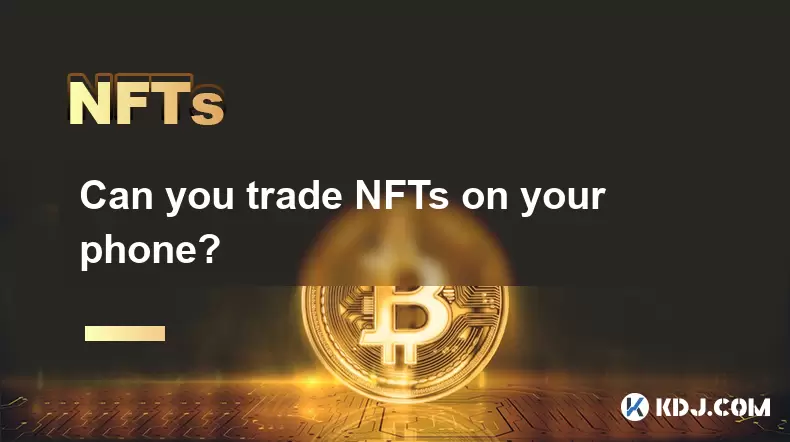
Can you trade NFTs on your phone?
Jul 18,2025 at 04:29am
Trading NFTs on Mobile DevicesYes, you can trade NFTs on your phone, and the process has become increasingly streamlined thanks to a variety of mobile...
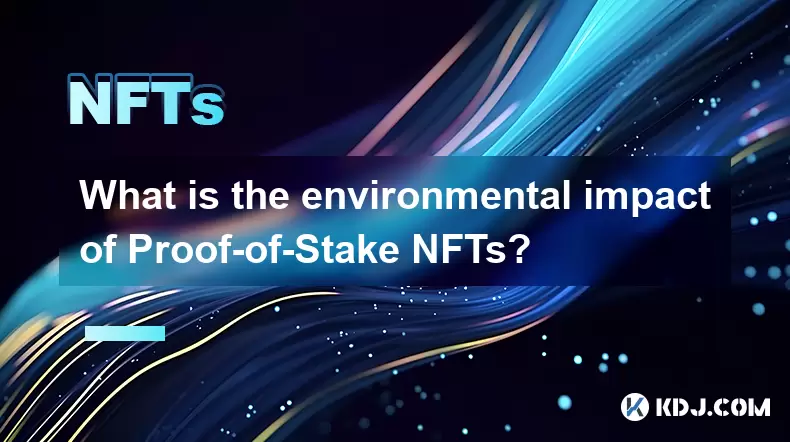
What is the environmental impact of Proof-of-Stake NFTs?
Jul 17,2025 at 07:14pm
Understanding the Basics of Proof-of-Stake NFTsProof-of-Stake (PoS) is a consensus mechanism used by blockchain networks to validate transactions and ...
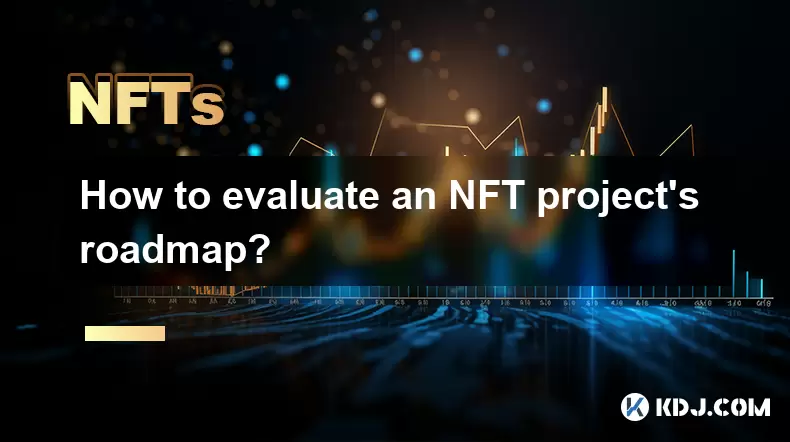
How to evaluate an NFT project's roadmap?
Jul 18,2025 at 01:21am
Understanding the Basics of an NFT Project RoadmapAn NFT project's roadmap is a strategic document that outlines the short-term and long-term goals of...
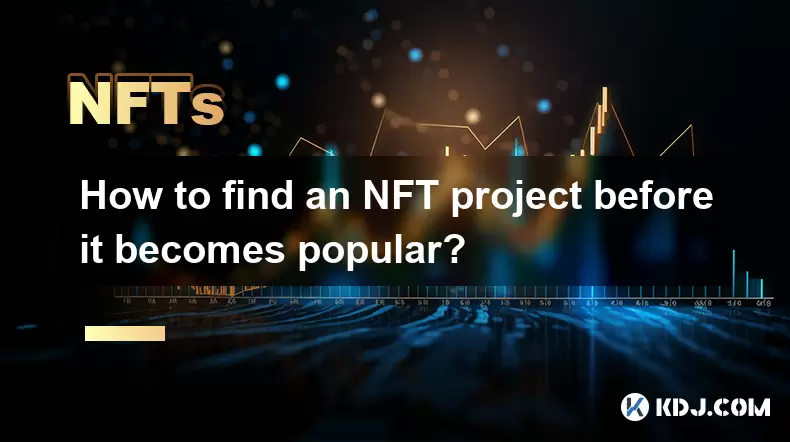
How to find an NFT project before it becomes popular?
Jul 17,2025 at 11:28pm
Understanding the NFT Landscape Before It TrendsThe non-fungible token (NFT) market has seen explosive growth, with some projects skyrocketing in valu...
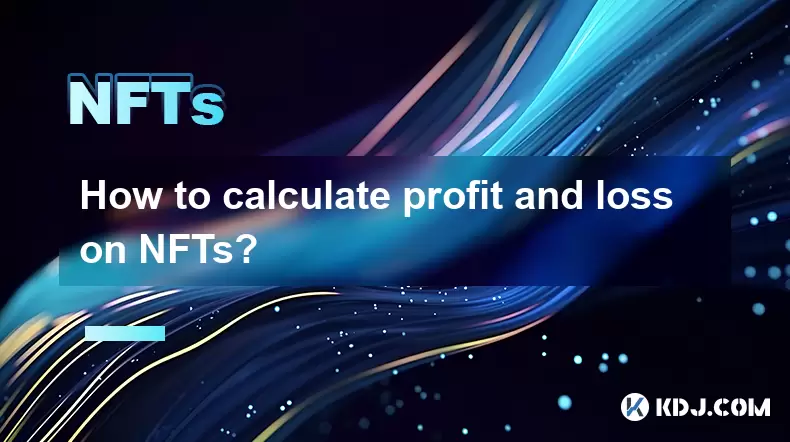
How to calculate profit and loss on NFTs?
Jul 17,2025 at 10:07pm
Understanding the Basics of NFT Profit and Loss CalculationWhen it comes to Non-Fungible Tokens (NFTs), calculating profit and loss is crucial for inv...
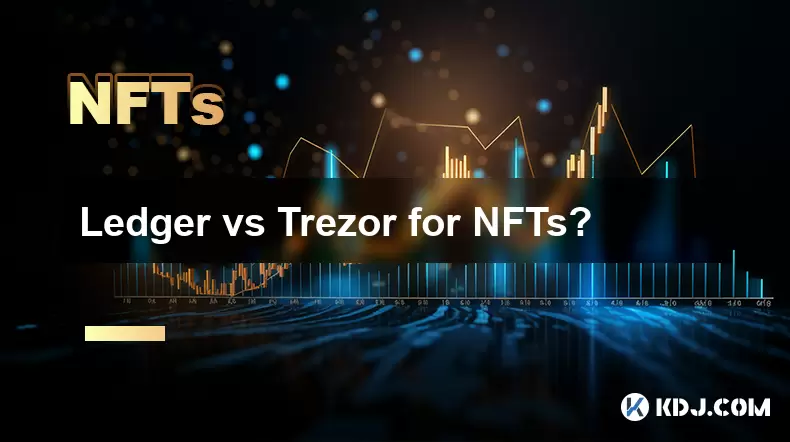
Ledger vs Trezor for NFTs?
Jul 17,2025 at 09:28pm
What Are Ledger and Trezor in the Context of NFTs?Ledger and Trezor are two of the most popular hardware wallets used for securing digital assets, inc...

Can you trade NFTs on your phone?
Jul 18,2025 at 04:29am
Trading NFTs on Mobile DevicesYes, you can trade NFTs on your phone, and the process has become increasingly streamlined thanks to a variety of mobile...

What is the environmental impact of Proof-of-Stake NFTs?
Jul 17,2025 at 07:14pm
Understanding the Basics of Proof-of-Stake NFTsProof-of-Stake (PoS) is a consensus mechanism used by blockchain networks to validate transactions and ...

How to evaluate an NFT project's roadmap?
Jul 18,2025 at 01:21am
Understanding the Basics of an NFT Project RoadmapAn NFT project's roadmap is a strategic document that outlines the short-term and long-term goals of...

How to find an NFT project before it becomes popular?
Jul 17,2025 at 11:28pm
Understanding the NFT Landscape Before It TrendsThe non-fungible token (NFT) market has seen explosive growth, with some projects skyrocketing in valu...

How to calculate profit and loss on NFTs?
Jul 17,2025 at 10:07pm
Understanding the Basics of NFT Profit and Loss CalculationWhen it comes to Non-Fungible Tokens (NFTs), calculating profit and loss is crucial for inv...

Ledger vs Trezor for NFTs?
Jul 17,2025 at 09:28pm
What Are Ledger and Trezor in the Context of NFTs?Ledger and Trezor are two of the most popular hardware wallets used for securing digital assets, inc...
See all articles

























































































